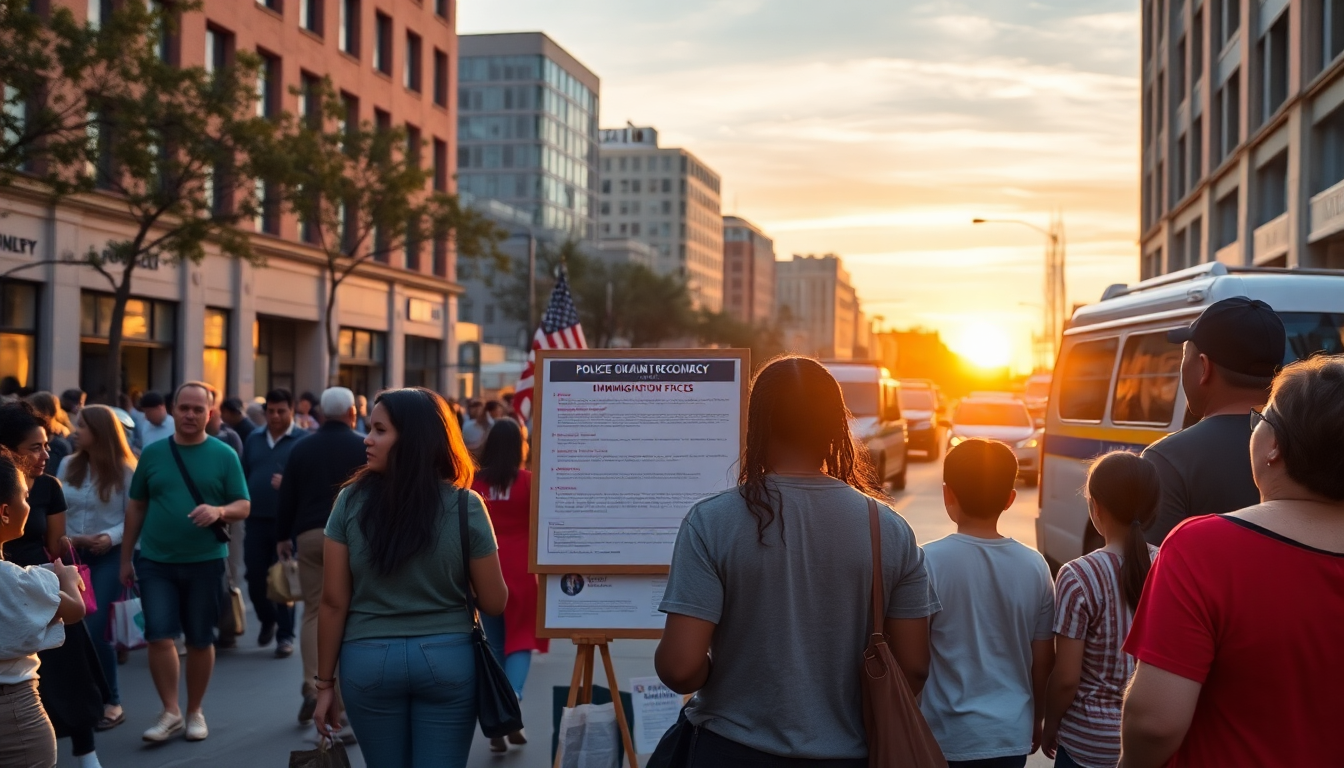Table of Contents
The current immigration enforcement strategies in the United States have sparked a wave of public outcry and fear, dramatically reshaping the lives of those directly impacted and altering the broader social and economic landscape of the nation. Instead of creating a sense of security, these tactics often seem to prioritize a show of strength over the implementation of humane and effective policies. What does this mean for the long-term future of American society and its standing on the global stage?
The Changing Landscape of Immigration Enforcement
In recent years, the U.S. has seen its approach to immigration morph into a spectacle marked by aggressive raids and intensified enforcement measures. This shift has not only transformed the narrative surrounding immigration but has also spotlighted a critical divide in public opinion. Many citizens find themselves grappling with the fear that these actions do little to enhance safety and instead foster an atmosphere of anxiety and unrest. Have we really traded safety for fear?
As this landscape of immigration enforcement becomes increasingly pronounced, the repercussions ripple far beyond immediate communities. The media’s portrayal of immigration raids often focuses on the dramatic nature of these operations, overshadowing the deeply human stories behind them. For families torn apart and communities disrupted, the fallout is profound, stirring a growing sense of outrage among citizens who cherish humane treatment and social cohesion. How many more families must be affected before change occurs?
The Economic Impact of Harsh Enforcement
Let’s talk numbers: the aggressive enforcement of immigration policies carries significant economic implications that are difficult to ignore. As businesses grapple with labor shortages caused by the fear of raids, local economies begin to feel the strain. This apprehension around immigration enforcement can deter not just workers, but also potential investors, creating a ripple effect that stifles economic growth. Isn’t it ironic that policies meant to protect us could actually harm our economy?
Moreover, the relentless focus on unrealistic deportation targets adds pressure on local law enforcement and community resources, diverting attention from addressing the root causes of immigration issues. The result? An economic landscape suffering from stalled job growth and hampered innovation, all fueled by an environment of fear and uncertainty. Can we really afford to let fear dictate our economic policies?
America’s Global Reputation at Stake
America’s standing on the global stage has come under increasing scrutiny in light of its immigration policies. The perception of the United States as a land of opportunity and freedom is at risk as reports of harsh enforcement tactics spread internationally. Other nations are watching closely how the U.S. manages its immigration system, and the current approach casts a long shadow over America’s reputation. How will history remember this chapter in American immigration?
In a world where global cooperation and humanitarian efforts are increasingly vital, prioritizing forceful immigration strategies sends a conflicting message. This could lead to strained diplomatic relationships and potential backlash from international human rights organizations. Thus, the implications of current immigration policies stretch far beyond U.S. borders, influencing how other countries perceive American values. Is this the legacy we want to leave behind?
Looking Ahead: Potential Shifts in Immigration Policy
As the socio-economic consequences of stringent immigration enforcement become glaringly obvious, there is potential for re-evaluation and reform. A shift back towards more humane policies could restore a sense of security for many individuals while revitalizing community bonds and economic stability. What if we chose compassion instead of fear?
Engaging in open dialogue and considering diverse perspectives on immigration could lead to more balanced and effective policies. By prioritizing human rights alongside economic growth, the U.S. can work towards rebuilding its reputation both at home and abroad. Are we ready to embrace a new approach?


